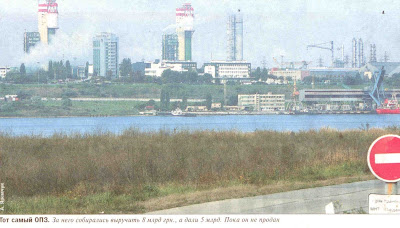One of the fundamental principles of economics tells us that people respond to incentives. In a free market economy, profit that is definitely the best incentive directs business toward activities that increase wealth. However, the 2008 recession showed that the Ukrainian government as well as the American government had different take on the key element of economics. I am taking about bailing out.
The Tymoshenko government bailed out couple private banks by purchasing around 90% of stocks in each privately-owned bank. For instance, state bough out Rodovid Bank. Everything seemed to be OK until a new announcement made by the Rodovid bank's administration. Rodovid needs additional $1 billion to restructure its debt. Ernst & Young will supervise Rodovid's debt restructuring. It looks like the Tymoshenko government is really good in turning any lucrative business in a bankrupt. I still wonder how did the government manage to let the state-owned oil company NAFTOGAZ go bankrupt?
The main problem is not even bailing out again. Now a main issue is that the Tymoshenko government has no money to finance a bail-out. A money-printing stunt thrown by the National Bank of Ukraine has already inflated domestic money supply to all time high of the last decade. Inflation is rampant in Ukraine! Moreover, the government budget resources are almost exhausted. At present moment, the government budget has less than $100 million at its disposal that is even lower than the dramatic 1998 level. Russia's prime minister Putin has already rushed to reprimand Ukraine's president Yushchenko for defaulting on payments for Russia's natural gas. Wait a sec, what does Ukraine's president have to do with this? Ah, it must be the politics.
So what does the Tymoshenko government do in search of external financial resources? The government announces sales of government bonds. The Tymoshenko government sells 6-month Ukraine's government bond with 30% yield! Even Brazil is more modest with 8.76% yield on its 6-month government bonds. Many domestic and foreign experts express their concern that the Ukrainian government can run a Ponzi scheme. I agree that it looks really weird.





